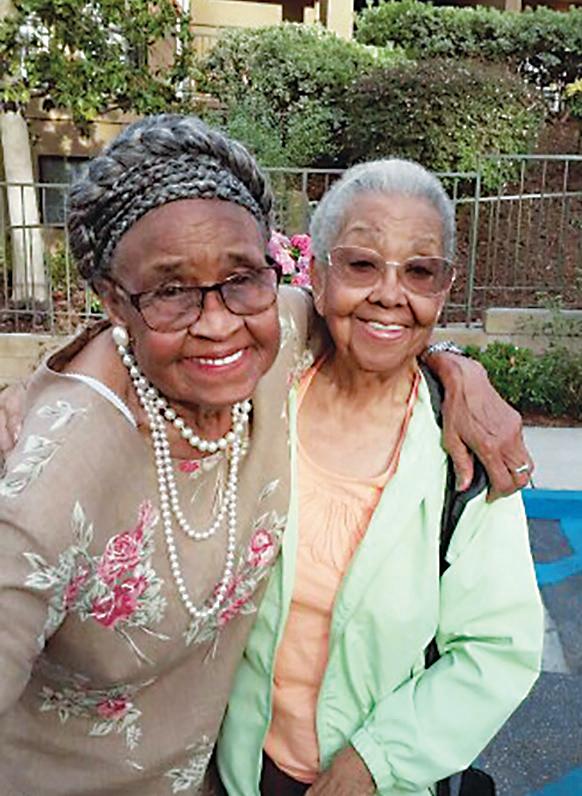
2 minute read
REMEMBERING A TRAILBLAZING PHARMACIST
Neodros Vernyta Bridgeforth ’52, the second African American woman to graduate from the USC School of Pharmacy, died October 13, 2017, at age 88. A trailblazer and community leader, Bridgeforth had a 60-year career in pharmacy.
“My mother was a force of nature,” says her son, Ronnie Bridgeforth.
Born in Jefferson, Ark., the eighth of 10 children, Bridgeforth exceled in school and after eighth grade was sent to continue her education in Pine Bluff, Ark., since no local high schools allowed African American students at the time.
At age 14, she moved to Los Angeles, where she had a transformative encounter with a pharmacist.
“She wandered into a pharmacy one day and the pharmacist asked if she wanted a milkshake,” Ronnie says. “He then asked her if she wanted to help him roll pills and told
her that she could become a pharmacist one day if she wanted to.”
“My mom was going through a dark period in her life but, from that day on, she felt like she had a direction and life goal,” says Connie Bridgeforth-Coulter, Bridgeforth’s daughter.
Bridgeforth graduated from high school, completed prerequisite courses at Los Angeles City College and enrolled in the USC School of Pharmacy when only a handful of African American students attended the school. Pharmacists Association’s Pharmacy Hall of Fame in 2018.
Outside of work, Bridgeforth enjoyed traveling the world and toured all 63 national parks in the U.S. She was a founding member of Bel-Vue Community Presbyterian Church in Los Angeles, and was active in local politics, serving as an officer on South Los Angeles’ Harbor Gateway North District Neighborhood Council.
“She lived a life in service to others,” Connie says. “She was a warrior woman with a heart of gold.”

Connie Bridgeforth-Coulter
“She went to school during the day and did filing work at night,” Ronnie says, “but she persisted and she graduated.”
Her pharmacy career began at Thrifty Payless (now Rite Aid). In 1966, she opened her first independent pharmacy, Southend Pharmacy, in Compton, Calif. She went on to own or co-own three additional independent pharmacies in South Los Angeles and, working closely with local doctors, provided an important service to the community she loved.
“The stores served as an experiential training ground for many young people, including many of our extended family members,” Connie says. “She was a mentor figure to so many in our community.”
Throughout her pharmacy career, she helped meet the needs of underserved populations and was active in various pharmacy associations. She was inducted posthumously into the California











